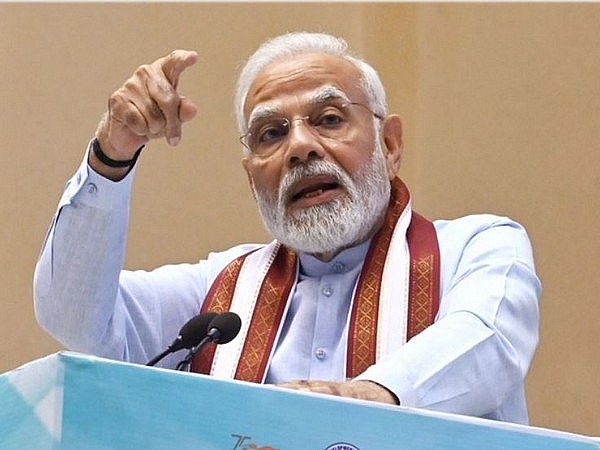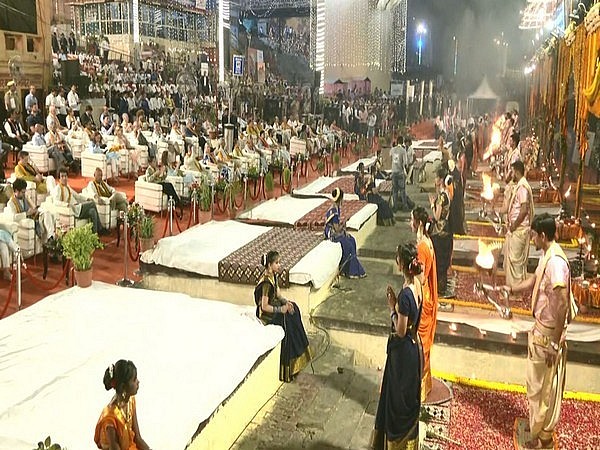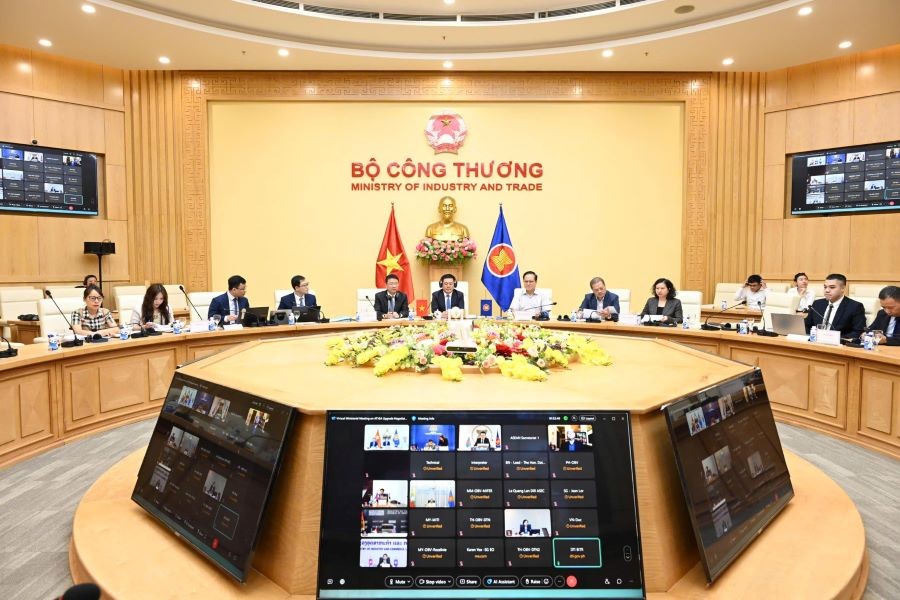PM Modi Calls For Women-Led Development, Investment In SDGs On Day 2 Of G20 Ministers’ Meet In Varanasi
 |
Prime Minister Narendra Modi on day 2 of the G20 Ministers’ meeting in Varanasi on Monday (June 12), not only urged everyone to adopt a game-changing action plan for women-led development but also said that attempts should be made to increase investment in fulfilling the Sustainable Development Goals (SDGs). Delivering a special video address at the G20 Development Ministers’ meeting under the G20 Indian Presidency in Varanasi, PM Modi emphasised that it is the collective responsibility of the people not to let the Sustainable Development Goals fall behind. He continued by saying that the Global South needed to strongly convey to the rest of the globe the necessary course of action.
Underlining the importance of gender equality and women’s empowerment in achieving the SDGs, the Prime Minister mentioned that India is not limited to women’s empowerment but extends to women-led development.
PM Modi emphasised that women are driving development agendas and acting as drivers of growth and transformation. Everyone, he said, should adopt a radical Action Plan for Women-led Development.
The Prime Minister said that multilateral financial institutions should be reformed to expand the eligibility criteria to ensure that finance is accessible to those in need. He added,
In India, we have made efforts to improve people’s lives in more than a hundred Aspirational Districts which were pockets of under-development that have now emerged as the catalysts of growth in the country, the PM said in his address. The Prime Minister urged the G20 Development Ministers to study this development model. It may be relevant as you work towards accelerating Agenda 2030.
PM Modi also underlined that the democratization of technology is a crucial tool to help bridge the data divide.
Democratisation of technology is an important tool to help bridge the data divide. In India, digitalisation has brought about a revolutionary change. India is willing to share its experience with partner countries, PM Modi said.
The Prime Minister welcomed delegates to Varanasi which he said is the oldest living city of the mother of democracy.
Highlighting the significance of Kashi, the Prime Minister said that it has been the centre of knowledge, discussion, debate, culture, and spirituality for centuries while it also has the essence of India’s diverse heritage serving as a convergence point for people from all parts of the country.
 |
Highlighting the significance of Kashi, the Prime Minister said that it has been the centre of knowledge, discussion, debate, culture, and spirituality for centuries while it also has the essence of India’s diverse heritage serving as a convergence point for people from all parts of the country.
I am delighted that the G20 development agenda has reached Kashi as well. Development is a core issue for the global south…I strongly believe that it is our collective responsibility not to let the sustainable development goals fall behind. We must ensure that no one is left behind, the Prime Minister said.
In an address at the Ministers’ meeting in Varanasi today, External Affairs Minister S Jaishankar spoke on the Russia-Ukraine conflict and added that it was understandable last year that the focus was on conflict, however over a period of time, a narrative began to take root that the conflict and its repercussions should not completely sideline the real concerns of the global south.
The International Solar Alliance (ISA), also called the International Agency for Solar Policy and Application is a group of 106 signatory countries (86 of which are members), the majority of which are sunshine countries that lie entirely or partially between the Tropics of Cancer and Capricorn.
The alliance’s main goal is to promote efficient solar energy use in order to lessen reliance on fossil fuels. This program was first presented by Prime Minister Narendra Modi, who co-launched it with French President Emmanuel Macron at the United Nations Climate Change Conference in Paris.
International Solar Alliance is also the treaty-based agency responsible for implementing One Sun One World One Grid (OSOWOG), which aims to transfer solar power-generated energy to other areas and meet electricity demands.
Earlier today, Jaishankar also welcomed delegates at the venue for the G20 Development Ministers’ Meeting in Uttar Pradesh’s Varanasi. The event began on Sunday (June 11) and will continue till June 13.
Jaishankar is chairing the G20 Development Ministers’ Meeting scheduled between June 11-13 and a total of 200 delegates are expected to attend the meeting.
The Development Ministers’ Meeting in Varanasi takes place in the midst of mounting developmental challenges that have been made worse by the slowdown in the global economy, debt distress, the effects of climate change, pollution, and biodiversity loss, rising poverty and inequality, the cost of living crisis, supply chain disruptions around the world, and geopolitical tensions and conflicts.
The Varanasi gathering follows the Voice of the Global South Summit, which was hosted by India in January 2023.
The decisions made at the Varanasi meeting will also have an impact on the United Nations SDG Summit, which will be held in New York in September.
Further, according to the official release, the meeting will consist of two main sessions — one on ‘Multilateralism: Collective Actions for Accelerating Progress towards SDGs’ and another on ‘Green Development: A LiFE (Lifestyle for Environment) Approach’.
Delegates from Brazil, Germany, Japan, Indonesia and China on Sunday arrived at the Varanasi Airport. Delegates experienced the culture of Varanasi and attended Ganga Aarti at the city’s Dashashwamedh Ghat yesterday.
Delegates to the G20 Development Ministers’ Meeting along with the EAM Jaishankar took part in the Ganga Arti ritual at the Dashashwamedh Ghat in Varanasi on Sunday evening. Jaishankar led the delegates on a cruise ride and sightseeing of the ghats.
Recommended
 Economy
Economy
